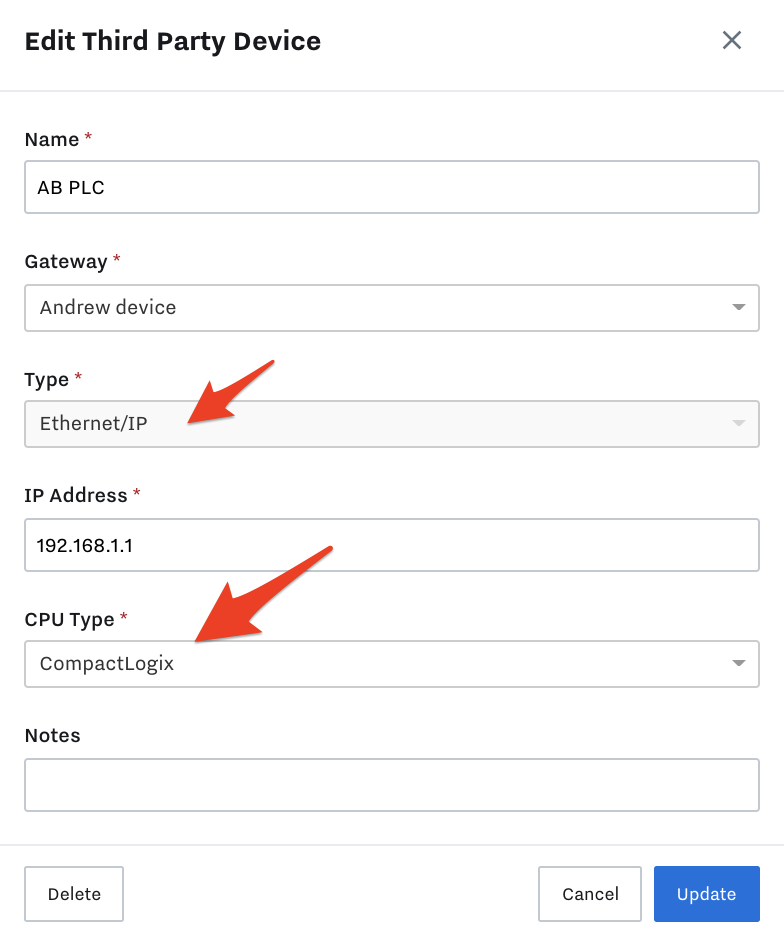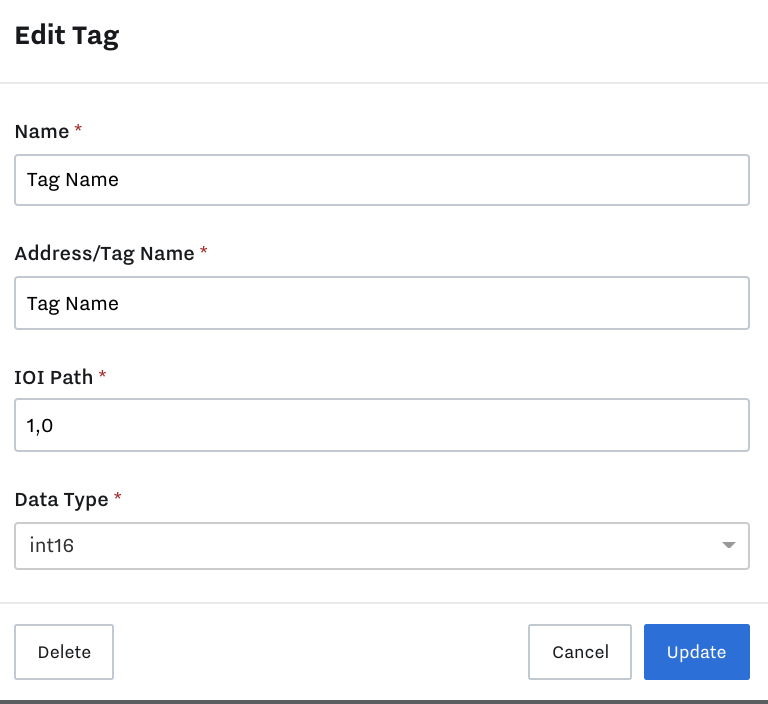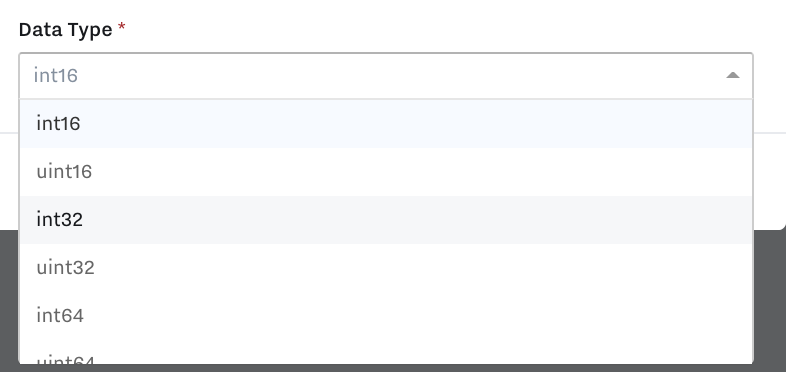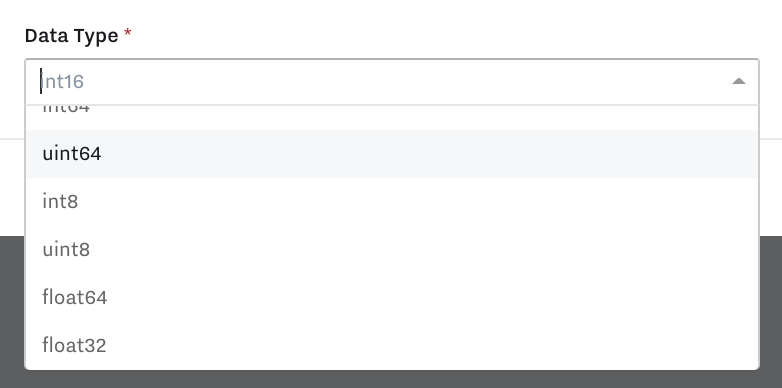Set up Ethernet/IP in the Cloud
Summary
We will walk through how to set up this type of device in the Samsara Cloud. You will map data inputs according to the protocol the third party device is communicating through.
Create Third Party Device
To map your third party registers in the Cloud, go to Settings > Third Party Devices > + Configure New Device. Fill out the details in the box below and hit Create.

Name: Give a name most appropriate for the data input (your choice)
Gateway: Select appropriate IG device
Type: Select Ethernet/IP
IP Address: This is the IP address of the PLC
CPU Type: This is the specific controller you are interfacing with. A full list of supported devices* is below: (*Ethernet enabled models only)
|
|
Configure New Tag
CPU Type will determine how you set up your registers, because each family manages its registers differently. We’ll walk through an example for a Control/Compact Logix Device Example. To start, go to Settings > 3rd Party Devices > select the 3rd party device you would like to map > + Configure New Tag

Name: Give a name most appropriate for the data input (your choice)
Address Tag Name: Must map exactly to the Address Tag Name on your PLC.
IOI Path (Compact/Control/GuardLogix Only): Specific to CompactLogix family. This value is almost always 1,0.
IOI Path Note: Second number is slot of processor. So, if for some strange reason processor was in the third slot the IOI path would be 1,2
Data Type: The data type here needs to match that of the “Address/Tag Name” in the PLC
Options:
For Boolean Inputs, select Int16
For Booleans nested in an INT, use the INT16/32 type of appropriate size
For Compact/Contrologix, use UINT8 data type for single booleans in a tag and formula x/255
Data Type Notes
INT -> INT16 in Samsara
DINT -> INT32 in Samsara
Tag Name options:
TagName[0].0 INT
TagName[0].1 INT
TagName[0].2-15 INT
AlternateTagName[0].0 DINT
AlternateTagName[0].1 DINT
AlternateTagName[0].2-31 DINT
Tag | Samsara | Samsara |
Address/Tag name | Formula | |
TagName[0].0 | TagName[0] | x&1 |
TagName[0].1 | TagName[0] | (x&2)/2 |
TagName[0].2 | TagName[0] | (x&4)/4 |
TagName[0].3 | TagName[0] | (x&8)/8 |
TagName[0].4 | TagName[0] | (x&16)/16 |
TagName[0].5 | TagName[0] | (x&32)/32 |
TagName[0].6 | TagName[0] | (x&64)/64 |
TagName[0].7 | TagName[0] | (x&128)/128 |
TagName[0].8 | TagName[0] | (x&256)/256 |
TagName[0].9 | TagName[0] | (x&512)/512 |
TagName[0].10 | TagName[0] | (x&1024)/1024 |
TagName[0].11 | TagName[0] | (x&2048)/2048 |
TagName[0].12 | TagName[0] | (x&4096)/4096 |
TagName[0].13 | TagName[0] | (x&8192)/8192 |
TagName[0].14 | TagName[0] | (x&16384)/16384 |
TagName[0].15 | TagName[0] | (x&32768)/32768 |

